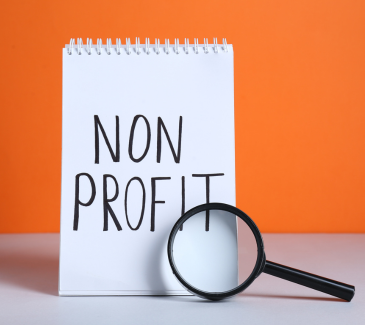by Brad G. Philbrick
For anyone trying to make a career pivot into professional writing—whether content marketing, technical writing, or medical communication—one thing becomes painfully clear: if you don’t have the “right” letters after your name, your experience might not get a second glance.
I hold a B.S. in pharmacy. That means I’ve taken more chemistry, pharmacology, and biology than I care to recall. I spent years in a hospital and a retail pharmacy before pivoting into biomedical sales. From there, professors and researchers began asking for help writing grant proposals, and I found my true passion—writing.
Today, I work as a contract writer, developing a range of materials, including grant proposals, blogs, and white papers. But I’ve had to carve my path because the industry rarely made room for me.
Try applying to medical writing jobs, and you’ll often find a gate slammed shut unless you have a PharmD, MD, or PhD. Look at content marketing roles, and you’ll be told that a degree in English, journalism, or communications is the price of entry. It’s enough to make you question whether your experience, your talent, and your track record mean anything.
They do.
However, you must demonstrate, prove, and present it in a manner that renders your lack of credentials irrelevant.
The Hidden Door: Experience Still Matters (And It’s Your Secret Weapon)
If you don’t have the right degree, then your portfolio becomes your key to success.
That means writing early, often, and publicly. Start a blog. Contribute to publications—volunteer for nonprofits. Help friends, small businesses, or professional associations with their messaging, newsletters, or grant writing. You can also create case studies of your work or write guest posts for industry blogs. Publish on platforms like Medium or LinkedIn to showcase both your voice and your thinking.
Most clients don’t care what your diploma says. They care whether you can solve their problem, hit a deadline, and make their ideas shine. Show them you can do that.
Know Your Niche—And Lean Into It
Your unique background is an asset. I’ve written grant proposals involving advanced diagnostics, clinical trial equipment, and therapeutics. Because I understand the science, I can translate complex ideas into plain, persuasive English. That’s a superpower—one that someone with a literature degree may not have.
So lean into your niche. If you have a background in law, business, health care, education, or tech, look for writing opportunities that overlap with your experience. Don’t just chase “general writing” gigs—position yourself as the best choice for the clients you can truly serve.
Stop Asking for Permission
Too many talented people sit on the sidelines waiting to be told they’re qualified. If you know how to write and are familiar with your subject matter, then you don’t need permission. You need projects.
Pitch ideas to editors. Respond to calls for pitches in newsletters like Opportunities of the Week or Who Pays Writers? Create samples and send personalized emails to agencies or small businesses. Don’t worry if you’re not “technically qualified.” Most great careers are built by people who showed up, not by those who met every requirement.
For the Gatekeepers: It’s Time to Broaden the Criteria
Let’s be honest: credentials are a shortcut. Hiring managers use them to quickly sift through applicants. But experience, voice, and real-world knowledge don’t always fit neatly on a transcript. Writers from nontraditional backgrounds bring perspective, depth, and adaptability—especially in this age of interdisciplinary work.
If you’re hiring, ask:
Can they do the work? Can they understand our audience? Can they make complex ideas clear and compelling?
The best writers often come from the most unexpected places.
Final Thoughts: You Deserve an Opportunity and Showcase Your Talent
To those frustrated and disheartened who attempt to navigate uncharted waters and rough seas, the writing world without a free pass is no walk in the park, especially without a degree in writing or a graduate degree in science. Know this: your experience is not a liability. It’s your leverage.
Study the craft, read books on writing, build your portfolio, and find the audiences who need your voice. You don’t need a credential to be a writer. You need courage, clarity, and persistence.
And above all, keep writing. Start today, and don’t stop until you’ve built a portfolio that showcases your unique voice and expertise. Then, start pitching your work to potential clients or employers. Because no one can reject what you publish yourself.
Because no one can reject what you publish yourself.
Social Media Intro Paragraph
🚫 Don’t have a PhD, an MFA, or a degree in journalism? You’re not alone. Too many writing gigs still prioritize credentials over capability. I wrote this essay for fellow writers (and frustrated career-changers) who are talented, experienced, and done waiting for permission. 👉 Writing Without Permission: How to Land Jobs Without the “Right” Degree. #writingcommunity #freelancewriter #nontraditionalcareer #careerpivot #contractwriting











































































